Portland, Oregon, is a major city without a major tourist destination. New York City has the Statue of Liberty and countless museums. Chicago has Millennium Park, while Los Angeles is brimming with iconic places. People who visit Portland come for its access to nature and excellent restaurant scene. Visitors may flock to Powell’s Books, but Portland doesn’t have a renowned landmark such as the Space Needle or the Hollywood sign. For moviegoers, however, the Hollywood Theatre should be reason enough to visit the City of Roses.
The theatre, which turns 100 years old in 2026, screens not only first-run movies, but a deep bench of retrospectives from classics to curated series such as Kung Fu Theater and Queer Horror. Featuring one large auditorium with a 50-foot screen that can hold 400 people and two smaller rooms upstairs with a capacity of just over 100 each, audiences can expect an expertly curated screening surrounded by people who love going to the movies.
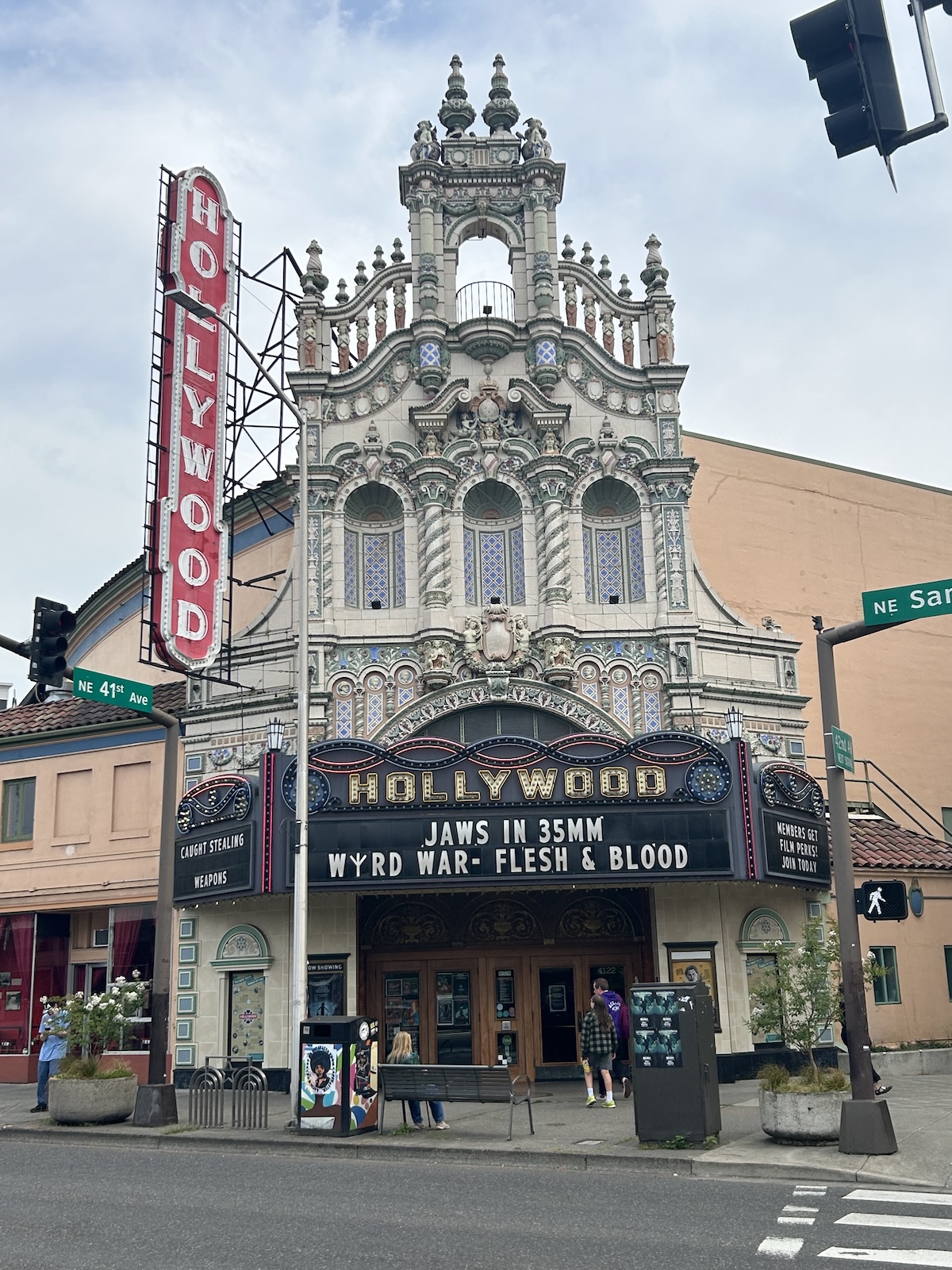
“My goal has always been for this place to be a movie mecca, that if you’re somebody who loves cinema, you have to go to the Hollywood Theatre,” said Dan Halsted, the cinema’s head film programmer.
For example, in October audiences can see Paul Thomas Anderson’s One Battle After Another in 70mm but can also go deeper and buy tickets for Paul Morrissey’s Blood for Dracula or Doctor X, an obscure pre-Code horror film from 1932.
“The Hollywood is more than a venue,” said Bennett Campbell Ferguson, a local critic who writes for a website called Fools Who Dream. “The moment you step through its front doors, you’re stepping into the cinephile’s equivalent of a town square—a community that brings people together not only for the sake of movies, but for the sake of human connection.”
While most mainstream cinemas screen everything digitally today, the Hollywood often shows movies on film—in both 35mm and 70mm formats. Halsted believes that audiences can tell the difference when watching a movie on film or digital and respond in kind.
“I can tell the audience is more engaged [when watching film],” he said. “People aren’t getting up as much. They’re not looking at their phones. It’s like they’re in a trance. There’s something about that 24 frames a second going through the projector that engages the human mind in a way that digital can’t replicate.”
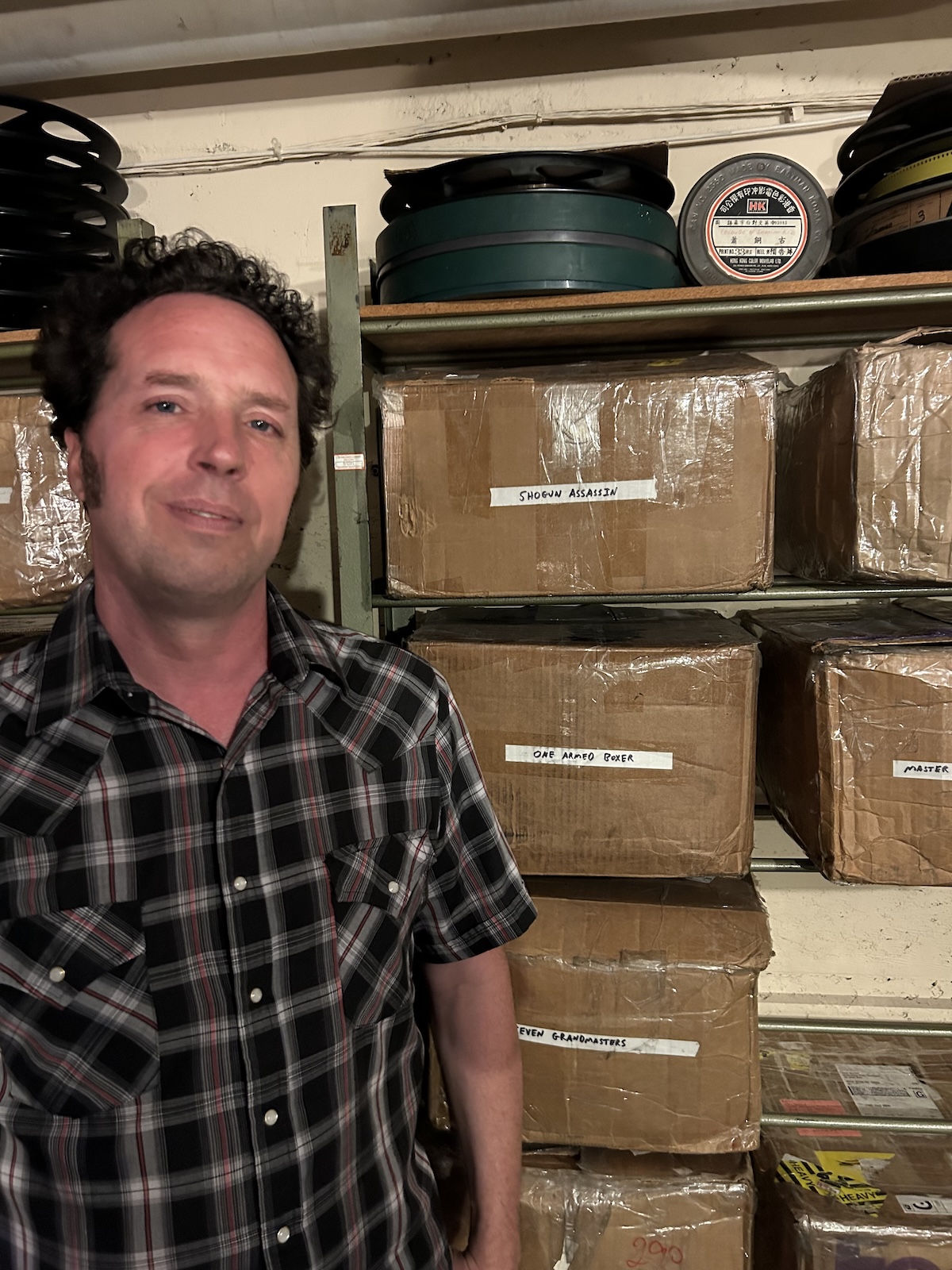

While the Hollywood screens some movies on digital, audiences can visit its website to see which are on film. For those who love the imperfections of film and the flicker of light that comes from the projection booth, this unique opportunity makes the Hollywood a special place. Recently, the theater played favorites like The Goonies and Jaws on 35mm, selling out multiple screenings.
“Seeing something on film, it’s like listening to a vinyl record or staring at a developing photo,” said Dom Sinacola, who reviews film for the Portland Mercury. “It’s not just about the movie, but about the life of the reels, what’s happened to them and where they’ve been, who’s owned them even—all these moments in time, every time you expose those reels to light, captured and altered by the next moment. A film reel is physical in a deeply satisfying way that digital just isn’t.”
Halsted, who has always been a film junkie, collects rare kung fu 35mm prints. He screens them weekly for sold-out audiences and holds the only known film copies for some of the titles.
“Like, every movie is better watching in a theater, but the electricity that gets going in a crowd watching a kung fu movie, it’s incredible,” he said.
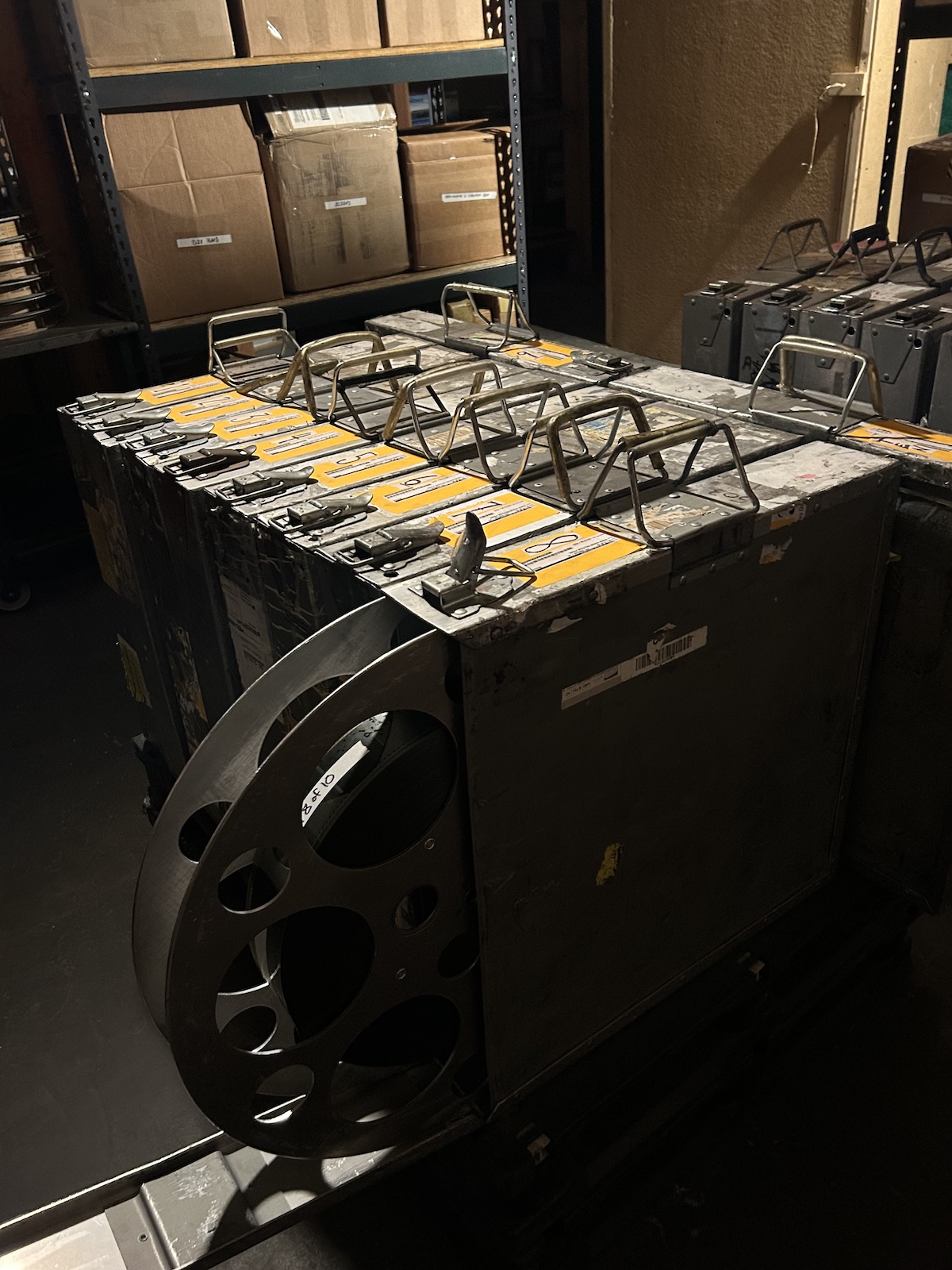

The Hollywood Theatre also has a fan base of people in the movie industry. Halsted counts RZA, Pam Grier, Joe Dante, and Todd Haynes as past visitors. When Quentin Tarantino released The Hateful Eight in 70mm, the director even turned up at the theater for one screening.
“As I was talking to [Tarantino] on stage, I was like, ‘Oh yeah, the first movie I ever saw at the Hollywood was Pulp Fiction,’” Halsted said. “I saw it here. It was a second-run theater at that time in the ’90s, and I remember watching the movie, and there was water leaking in through the roof. I like to think about how far this place has come.”
Originally a 1,500-seat auditorium for both movies and vaudeville, the Hollywood was divided into three separate cinemas in 1975 and ran second-run films in the ’80s and ’90s. In 1997, the nonprofit Film Forever Northwest took over the theater, and after a major renovation campaign in the 2010s, the theater received new screens, seats, and sound.
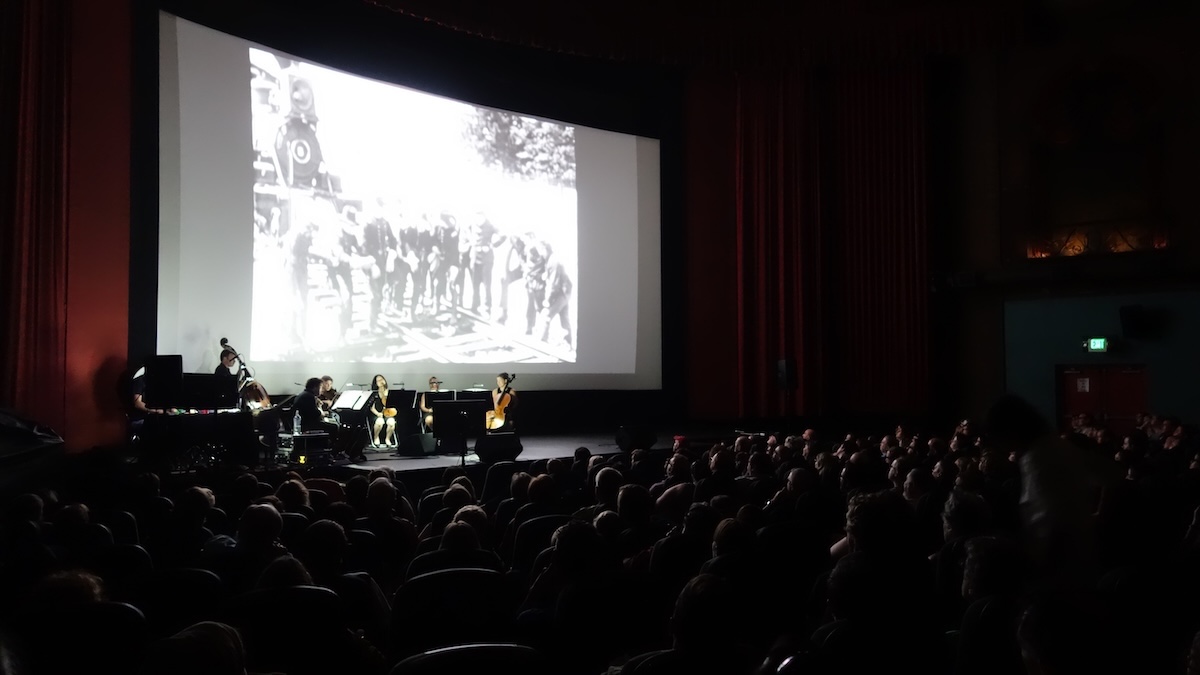

“When I took over programming and when Doug [Whyte] took over as executive director, this place was about to close,” Halsted said. “It was in horrible shape in 2010. I’d already worked here as a projectionist. I remember showing movies and just nobody [showed up]. The screen downstairs had these big stains on it. It was cold in here. It was awful, and the programming was just bad.”
According to Whyte, there are plans in the works to not only continue renovating the Hollywood but to also relocate Movie Madness, Portland’s famed video store that rents out more than 90,000 titles, across the street to create a film district. The project aims to raise $16 million for a comprehensive renovation that includes the bathrooms, electrical, seats, exterior improvements, and more sometime in late 2026 or early 2027.
“It has original plumbing from 1926,” Whyte said. “So that’s a job. New bathrooms, new seats, new carpet. We’re going to restore the murals in the auditoriums. We’re going to get new chandeliers and redo the concession stand.”
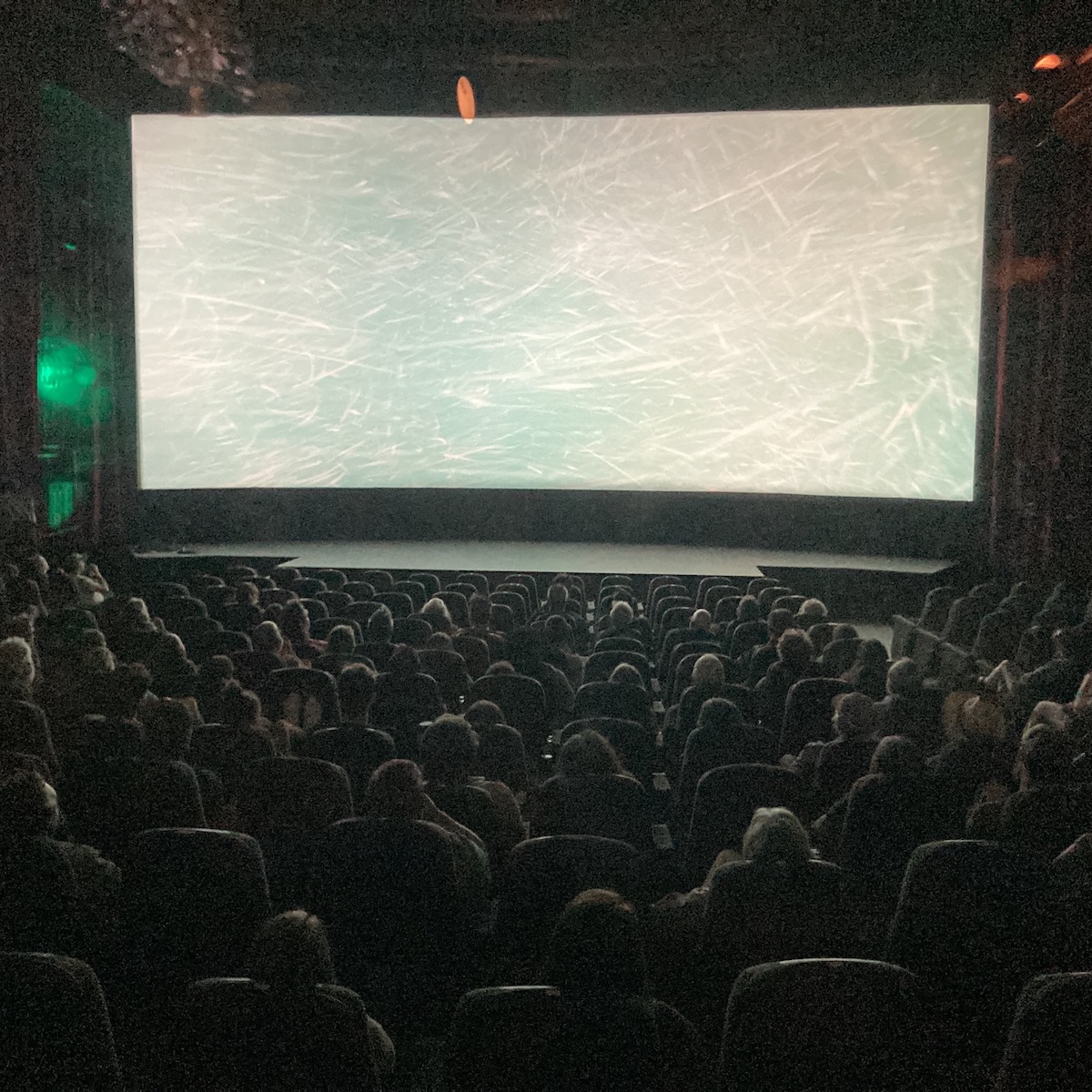

But the Hollywood isn’t alone when the time comes to raise money. Multiple celebrities have already offered support for the theater and its mission.
“Todd Haynes gave us a quote about what we’re doing,” Whyte said. “Sean Baker just gave us an endorsement video. Julianne Moore, Michelle Williams, Gus Van Sant, Kelly Reichardt, Natalie Portman. All these people think it’s totally cool what we’re up to.”
Most of the support comes from the Hollywood’s membership program. Offered at different tiers, benefits include free admission to some screenings, free rentals at Movie Madness, free popcorn, early access to tickets for special events, discounted tickets, and more depending on the level of commitment.
“Most—if not every—show plays to a sold-out audience, making each screening feel like a true community event,” said Curt Sobolewski, who has been a Premiere member since 2016 and attends about four movies per month at the Hollywood. “While streaming options at home are plentiful, the Hollywood Theatre has curated such a diverse catalog of films and media that it has become one of my favorite parts of living in Portland—a place that brings people together to share the joy of watching movies.”



